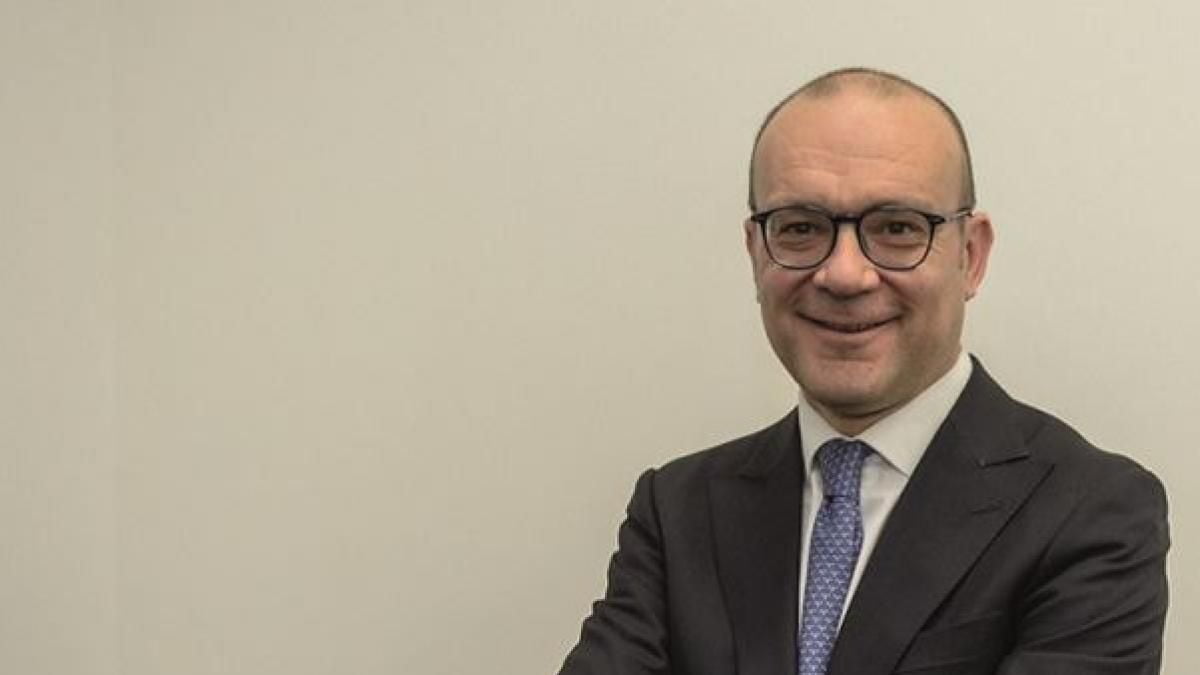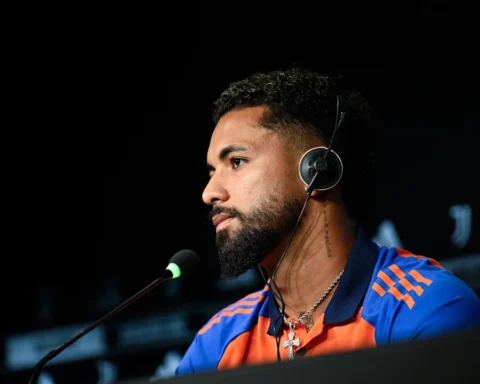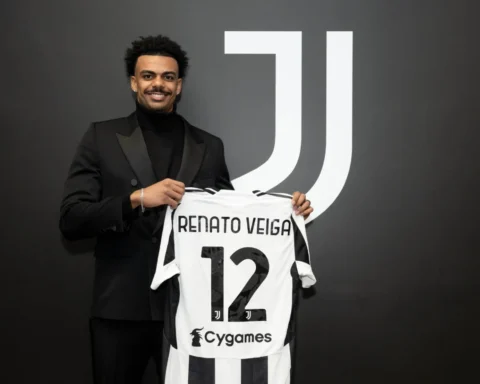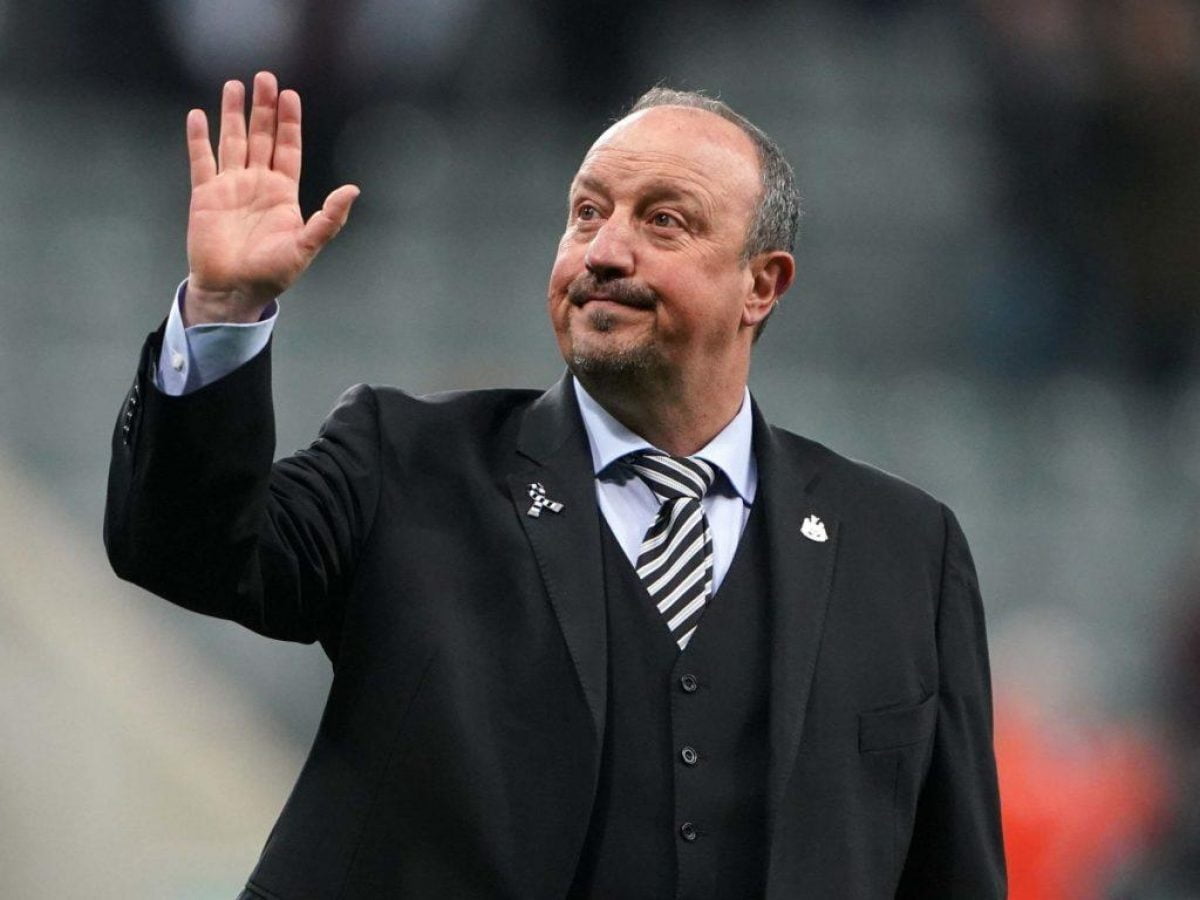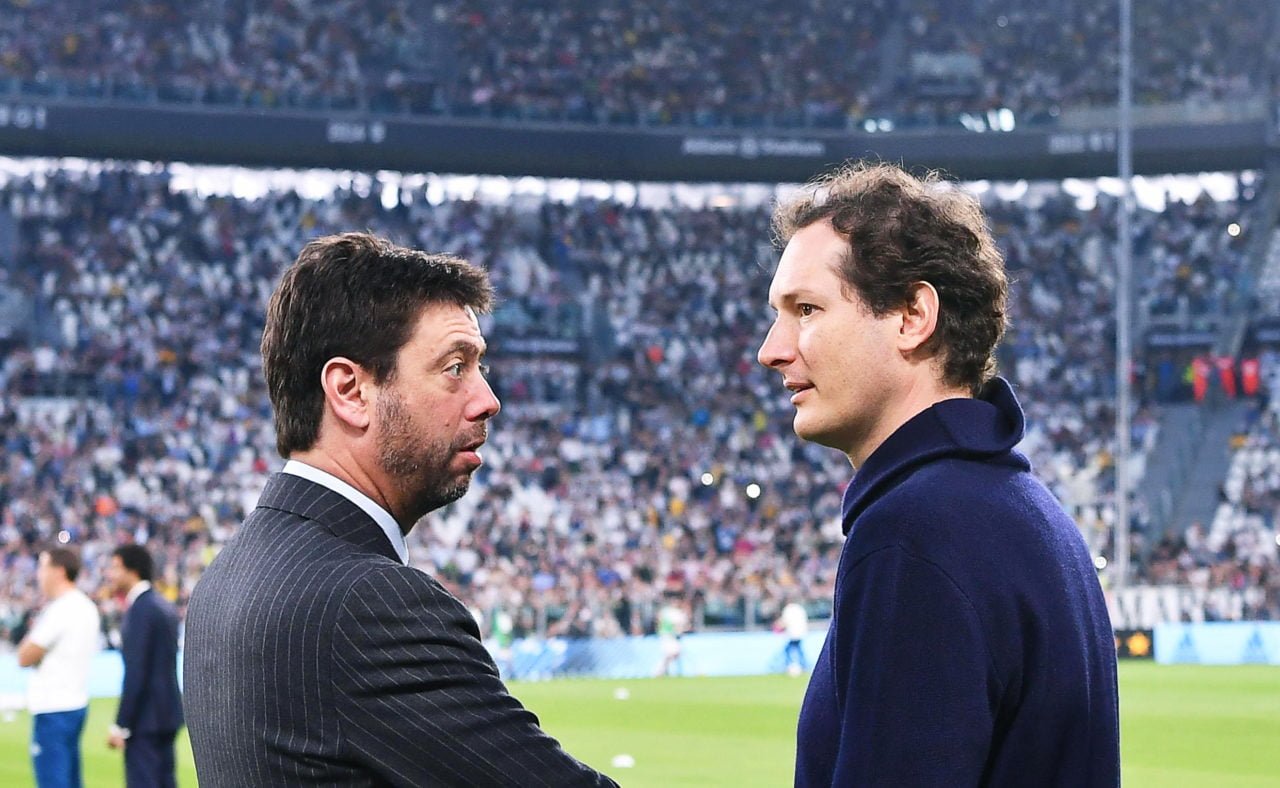Juventus CEO Maurizio Scanavino explained how the club’s summer training camp in Germany was a good opportunity for the team to bond. The Bianconeri spent the pre-season with new coach Thiago Motta, and speaking with Tuttosport, Scanavino explained the impact the new coach has had, and the rapport that’s been established with the coach:
Good morning Scanavino, let’s start with the big news: what impression did Thiago Motta make on you? You were with him for the entire German retreat.
“Yes, the retreat in Germany was a beautiful moment to bond with the whole team, the coach, the technical staff, and the support staff. What I appreciated about that week was the great willingness of everyone to get involved and work hard, with a lot of enthusiasm. The location was also very suitable for creating this team spirit, so much so that moments were created that my more experienced colleagues in the sports department described as ‘from another era’, where in the evening we would gather to play football, ping-pong, bocce, and darts. I must say it was really a great moment.”
And Thiago Motta?
“We immediately developed an excellent rapport with him; he’s a person with whom we share all situations step by step. Germany, living together for a week, was an important opportunity to see each other several times a day, talking about technical issues, more general situations, or just for pleasant chats. In short, the figure of an extremely dedicated, determined person emerged, very attentive to details, and certainly very ambitious. Moreover, he has a strong personality and a very frank and direct way of communicating with players. It’s evident that he goes straight to the point, which is highly appreciated, because I’ve noticed how everyone follows the work rhythms positively.”
He seems very in tune with the management.
“I would say that the harmony with myself and with Cristiano (Giuntoli, ed.) stems from the fact that he is very focused on coaching. A fundamental element is the clarity of roles within the company: both for the sports part and for the more classic business part. In his case, having a clear understanding of his role as a coach, he is very open and curious to discuss and understand the needs, strategies, and objectives that go beyond his role.”
You come from experience outside of football. Did you have Motta explain some technical aspects to you while you were in Germany?
“Well, from this point of view, I rightly try to learn, so I discuss with him just as I discuss with Cristiano when we talk about player profiles, attitudes, performances on the field, during training, or opportunities we’re evaluating in the market. What struck me the most is that beyond the technical aspect, for him, the aspect of availability, commitment, personality, and versatility of players is paramount. In short, that’s essential for him, then obviously the more talented one is, the more functional and important they can be for the team.”
So Motta looks at the whole, not the individual?
“I’m not an expert, so I’m used to evaluating talent, the aesthetic aspect, the eye-catching move more. Instead, it’s very clear that for him, the foundations on which to build a team, a group, depend mainly on the individuals’ attitude to collaborate.”
Earlier, you were talking about the clarity of roles. How have you structured the new and now definitive organizational chart?
“The technical part of the men’s area is headed by the sporting director, who is Cristiano Giuntoli. Giuseppe Pompilio, who is the ‘chief of staff’, collaborates directly with him, and then we have Stefano Stefanelli, who is responsible for scouting. Regarding the youth sector, there’s Claudio Chiellini, who is the sporting director of NextGen, coached by Montero. Massimiliano Scaglia is, instead, the head of the Under 20, which is now coached by Magnanello. Gianluca Pessotto has become the technical coordinator of the youth sector, and Michele Sbravati is, instead, responsible for the youth sector. As for the women’s area, we have director Stefano Braghin, a new coach who is Massimiliano Canzi, and Carola Coppo responsible for the women’s youth sector. In some ways, it’s not very different from the previous structure and, let’s say, from a classic structure.”
A fan asks you how a decision is made within Juventus, let’s say a market decision, what do you answer?
“Generally, regarding the identification of incoming players, everything starts from technical evaluations, specific needs, and identification of certain profiles. Then, thanks to scouting, a series of elements are identified. These are mainly shared between the sporting director and the coach. At that point, a sort of shortlist emerges and, also based on the budget we set, we choose the type of contract we want to give. Given the mix we have in mind, made up of young talents, more established players, and top players, it’s very important for us to frame the profiles that are most functional to the development of both costs and their potential progress. These are the main elements that are evaluated in the choices. Then once the player is identified, Cristiano can start the negotiation, and from there, there are daily discussions between him and me.”
And, moreover, as I could see from the latest communications, everything is rigorously tracked to give precise feedback to the auditors.
“Everything is tracked, certified, transparent, and it’s an approach that we consider important, also to protect the company, so we even have a mechanism for certifying the value of the player. For example, as we did for the valuations in the operation of the purchase with the exchange of Douglas Luiz. So everything is much more complicated, but also very transparent. Giuntoli, I must say, has an extraordinary ability to shape negotiations based on business needs. He would certainly have an easier life if he could go with loose reins, but he has adapted perfectly.”
We’ve talked about your impressions of Motta, tell us what Giuntoli is like after a year of collaboration between you two?
“In addition to being excellent as a talent scout, he also has the ability to set up difficult and complex negotiations that bring together our needs, the requests of others, the wishes of the players, the intervention of agents. And he knows how to act in a formal and transparent way, which in some ways can be an additional difficulty in a world like that of the football market.”
Juventus does it, others can afford not to do it if they don’t want to.
“But we are listed. Being listed entails obligations for us, however, this attitude could be maintained beyond the listing…”

